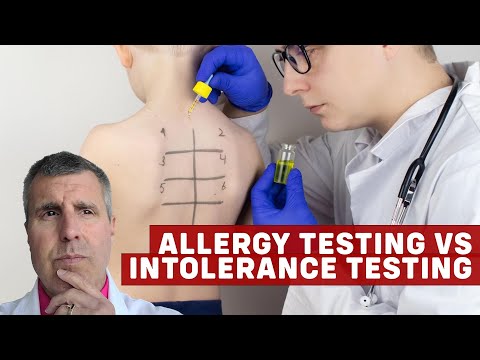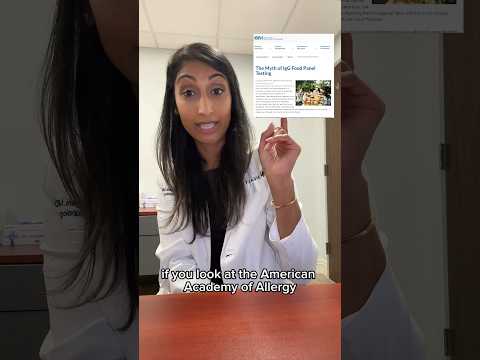Food allergies affect millions across the globe, making food allergy testing crucial for your health and safety. Whether you’re a seasoned athlete or someone just starting their fitness journey, understanding food allergies can help you make informed choices that can protect you from potentially dangerous reactions. The stakes are high when it comes to what you put in your body. Knowledge is your best ally in making safer dining decisions. So let’s dive into what food allergy testing really is and how it can impact your life.

The Top 7 Types of Food Allergy Tests: Which One Is Right for You?
When it comes to allergy testing, there are several options available. Let’s break them down to find the right fit for you. Each test has its strengths, and knowing them can make a huge difference in protecting yourself from the food that doesn’t agree with you.
This quick test involves placing a small amount of allergen on the skin and then pricking it. A positive reaction usually shows up as redness and swelling. For instance, brands like Allergists of America provide comprehensive skin prick testing panels, letting you uncover allergens in no time flat.
These tests measure how your immune system reacts to specific allergens by checking your IgE antibody levels. A popular example is the ImmunoCAP test from Thermo Fisher Scientific. This type can pinpoint particular food allergies efficiently, ensuring you know what to avoid.
While this method is more commonly used for delayed allergic reactions, it can help identify triggers for eczema or other skin issues. If food is suspected, patch testing can give you insight into what might be causing your skin troubles.
This test is usually done under medical supervision in a controlled environment. You consume the suspected allergen while healthcare professionals watch for any reactions. Places like Mount Sinai Hospital have established procedures to make this as safe as possible.
This strategy involves removing suspected allergens from your diet for a certain period and then gradually reintroducing them. Programs like Food Allergy Research & Education (FARE) recommend this method, especially for undiagnosed allergies.
This advanced testing identifies specific proteins within foods that might cause allergic reactions. Companies such as Eurofins offer detailed CRD testing, providing a clearer picture of your sensitivities.
Brands like Everlywell allow you to test for food allergies at home. However, it’s important to consult an allergist for accurate interpretation of results and follow-up care, as misinterpretation could lead to unnecessary dietary restrictions.

Allergy Testing: Debunking Common Myths
There are lots of myths floating around about allergy testing that can lead to confusion. Let’s clear up some of these misconceptions so that you can make educated decisions about your health.

Who Needs Allergy Testing?
Food allergy testing is vital for several groups of people. Understanding who should consider getting tested can help broaden your perspective on this serious issue.

Navigating Allergy Medicine: Treatments and Management
Once you’ve identified your allergies, understanding allergy medicine becomes vital. Familiarizing yourself with treatment options will empower you to take control of your health.

Living with Food Allergies: Tips for Safe Eating
Taking proactive steps will help you navigate life with food allergies effectively. Here are some tips to empower you to stay safe while enjoying your meals.
Innovative Approaches to Food Allergy Management
Recent advancements in allergy testing and treatment are promising. Techniques like oral immunotherapy and desensitization programs are gaining traction and show potential for transforming how we manage food allergies.
Organizations like The American College of Allergy, Asthma, and Immunology (ACAAI) are paving the way for better allergy management. Ongoing research aims to develop more effective methods of handling food allergies, which could lead to fewer dietary restrictions and a better quality of life.
Having a concrete understanding of food allergy testing is essential in today’s health-conscious climate. With various tests available, you can confidently dodge dietary pitfalls and embrace a lifestyle that fuels your fitness goals. As advancements unfold, remember that knowledge and communication will keep you safe, letting you focus on what really matters: building a strong, shredded physique. So, gear up and hit your meals with confidence! Your health isn’t just a priority; it’s your foundation for greatness.
Food Allergy Testing: Keys to Safe Eating for Everyone
Food allergy testing is more than just a precaution; it’s a gateway to understanding what keeps you safe at the dinner table. Did you know that roughly 32 million Americans have food allergies? That’s a staggering number that sheds light on the importance of identifying allergens through testing. Proper food allergy testing can alleviate anxiety for many, especially since some individuals might even have a phobia of phobias, making the thought of eating out incredibly stressful.
The Science Behind Testing
Modern food allergy testing typically relies on skin prick tests or blood tests to measure the presence of specific IgE antibodies. In the blink of an eye, these tests can reveal allergies to foods as common as nuts or dairy. The accuracy of these tests is crucial. If someone unknowingly consumes a problematic food, the repercussions can be severe. It’s not unlike encountering ridge cap shingles—both can lead to undesirable consequences if not addressed. Therefore, understanding the results is key to safe eating.
Trivial Pursuits: Facts That Matter
Here’s an eye-opener: less than 2% of children continue to have peanut allergies as they grow older. Talk about a glimmer of hope! Furthermore, some food allergies can stem from things you wouldn’t expect. For instance, Defecating can actually alter the immune response in some individuals, adding a layer to how allergies are formed. Weird, right? On the flip side, there’s exciting research around ferritin high levels and their correlation with food allergies, opening new avenues of discussion and potential treatment strategies.
The world of food allergies is ever-expanding. For instance, actor and athlete Aiden Hutchinson openly shares his experiences with allergens, making it a relatable issue. Additionally, some celebrities have brought heightened attention to these matters, with even the Iggy Azalea Of leak trending topics sparking conversation about allergy awareness. Ultimately, understanding food allergy testing can pave the way for safe, enjoyable meals—a goal we all can strive for!



























